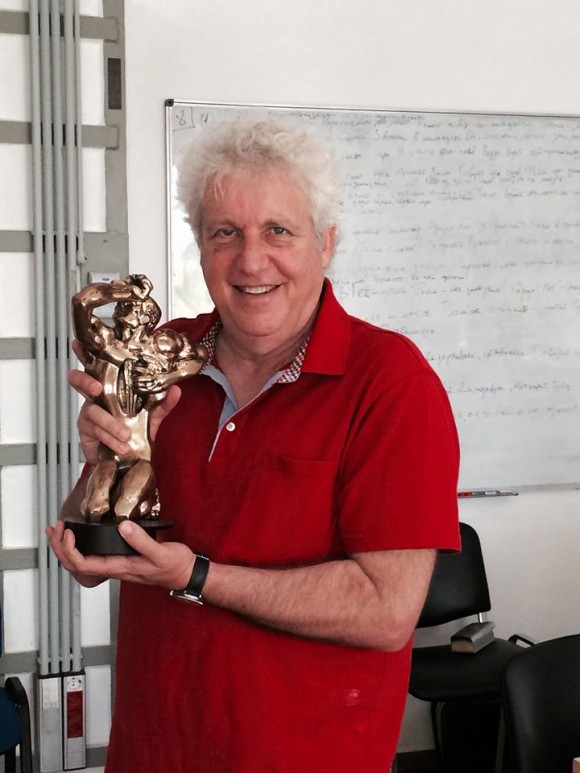Blaustein Creates Runaway TV Success in Russia
September 28, 2015
Though he speaks no Russian, Professor Barry Blaustein helped create the most successful TV show in the history of Russian television. Though he’s had great success as a screenwriter in Hollywood, Blaustein had never worked on a sitcom – the form of the Russian comedy Fizruk, or “Gym Teacher,” which he traveled to Russia over two summers to help create.
Fizruk features Foma (played by Dmitriy Nagiev), a low-level enforcer for the Mob who loses his job and decides to become a gym teacher. Stuck in a 90’s Russian mindset, Foma believes racketeering is still the currency of the country and struggles to adjust to a society that has changed. While he teaches, he also uses the school as a front for activities like blackmail and prostitution.
Blaustein also left one job – as a screenwriter in Hollywood – to become a full-time screenwriting professor. While visiting a friend in early 2013, he was introduced to a television writer who had consulted on Russian versions of American sitcoms.
“I thought I would like to do something like that, because I love to travel and experience different cultures,” says Blaustein. “So I asked him if he thought they might be interested in using someone like me,” says the veteran writer of Saturday Night Live and of such Hollywood comedies as The Nutty Professor and Coming to America. “Little did he know I had little experience writing sitcoms.”
After a successful Skype interview with GoodStory- Media, a Russian Production Company, Blaustein was hired to develop story-lines for an original sitcom for four weeks with an option for another four. Russian sitcoms air four episodes per week, with a season lasting five weeks, unlike their American counterparts which typically air one episode a week over 20 weeks.
To prepare for his new foray into sitcoms, he taught a semester in TV Writing (Comedy) shortly before traveling to Russia, which he says contributed to his success working on the show. With one exception, Blaustein’s Russian colleagues didn’t speak any English. Yet, working with a translator, they were able to create story lines for 20 episodes. After the first season aired, the show’s popularity escalated, quickly making it the most successful TV show in the history of Russian television. It brought on the creation of a second (currently airing) and third season, which Blaustein collaborated on over the summers of 2013 and January 2014, respectively.
It also earned Blaustein a Taffy Award for Best Show (the Russian equivalent to the Emmy’s), making him the first American to ever receive one.
Currently, Blaustein has a few irons in the Hollywood fire, but he is primarily focusing on teaching, which he finds incredibly life-affirming. “I get so much satisfaction out of seeing a student have a breakthrough – it’s a tremendous high, as a professor.”



